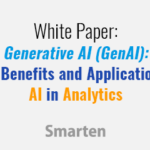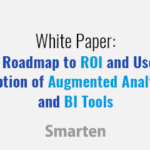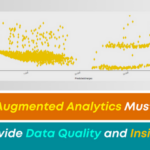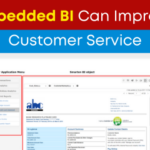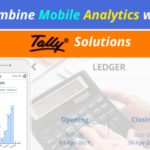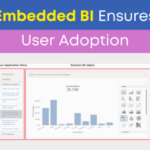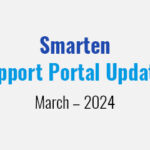Natural Language Processing (NLP) Supports Business Users with Analytics in Human Language!
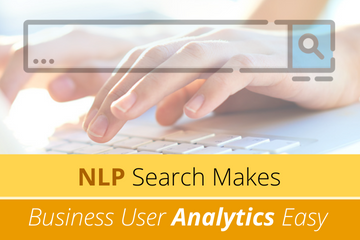
If you are trying to implement data democratization and analytics for business users but your team members are intimidated by analytics, there is some good news! If you choose the right solution, you can provide these tools to your users in an environment they will adopt with simple features and processes that are familiar to them.
Gartner research states that, ‘…data literacy will become an explicit and necessary driver of business value, demonstrated by its formal inclusion in over 80% of data and analytics strategies and change management programs.’
‘If you can give your team members an augmented analytics solution with Natural Language Processing (NLP) you can capitalize on their familiarity with this search technique and allow them to achieve results quickly and easily – without frustration or delay!’
Encouraging and supporting data literacy does not mean you have to train your team members in data science or hire staff with advanced data science skills. It simply means you should support your business users with easy-to-use features and tools they can combine with their market, industry and career experience and knowledge to achieve the greatest results.
In this article, we will discuss the importance of Natural Language Processing (NLP) in analytics and how this familiar approach to queries and searching can help you support user adoption of augmented analytics and increase data literacy among your team members.
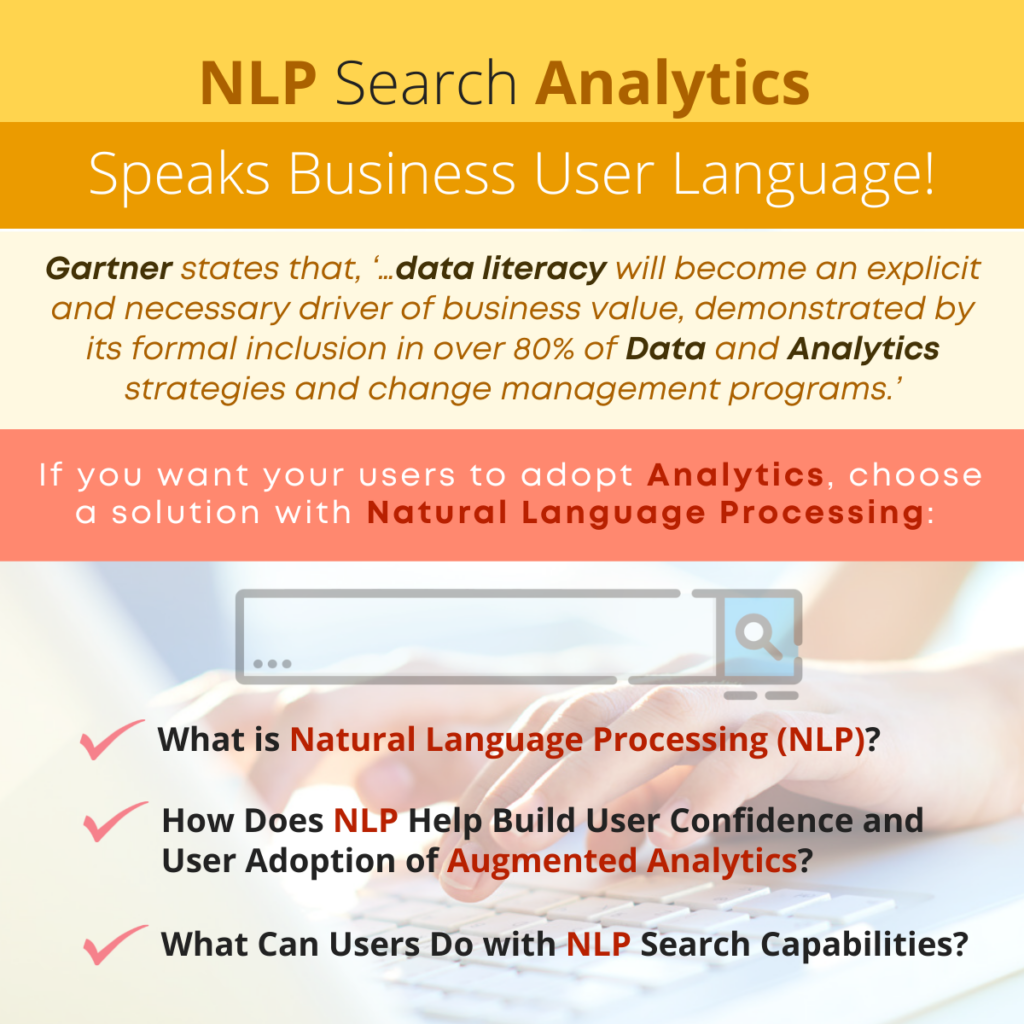
What is Natural Language Processing (NLP)?
Natural language processing (NLP) is defined as a branch of computer science and artificial intelligence (AI). It is focused on designing a computerized approach to support, understand and interpret text and spoken words to enable software and programs to communicate and interact with humans in a ‘natural’ human language environment. An easy way to understand this concept in practice is to consider the Google search engine interface, which allows users to type simple (or even complex) questions into a search field and receive a list of ranked results that meet their requirements. Rather than having to create a complex query, users can ask, ‘who won the Giant Slalom Downhill Alpine ski competition at the 2014 Olympics?’ The user might even misspell a word, and the system will adjust and produce results. That’s NLP in a nutshell. Ask your computer a question just as you might ask another person the same question, and your computer, smart phone, tablet, or notebook will answer in words you can understand!
How Does NLP Help Build User Confidence and User Adoption of Augmented Analytics?
Analytics is hard! That’s why data scientists, IT and business analysts spend so much time in training, so they can understand how to create queries, program an analytics approach and produce reports. But today’s augmented analytics solutions are designed for business users. These solutions support the average technical skills of your team members and provide sophisticated, complicated algorithms and analytical techniques in a simplified environment that allows the user to bypass all the complex training and analytical approaches and simply ask a question, using Natural Language Processing. Users will want to use the augmented analytics solution to make their job easier and faster and produce clear, comprehensive results in a way they can understand – a way that is meaningful to them. So, your team member might ask, ‘Who sold the most bakery items in the Southwest in 2014?’ Users do not have to create, code or program. All they have to do is ask!
What Can Users Do with NLP Search Capabilities?
When a business user engages in augmented analytics using Natural Language Processing (NLP), you can build an organization that will transform team members into Citizen Data Scientists. The resulting analysis can be combined with the professional knowledge and specific domain skills of the individual to better understand and gain insight into trends, patterns, issues, and opportunities and improve time to market, accuracy of predictions, and metrics and measurements.
Adopting these tools and techniques and actively engaging in augmented analytics allows users to effectively interact with, and collaborate with, the IT team and data scientists to prepare data and use data in use cases, and to refine outcomes and improve data-driven decision making across the enterprise. And it’s all because the analytics solution speaks their language!
When it comes to analytics, enterprise results are dependent on user adoption and user understanding of the system. If you can give your team members an augmented analytics solution with Natural Language Processing (NLP) you can capitalize on their familiarity with this search technique and allow them to achieve results quickly and easily – without frustration or delay!
‘Natural Language Processing (NLP) is a familiar search approach that supports user adoption of augmented analytics and increases data literacy among your team members.’
Find out how Augmented Analytics products and Natural Language Processing (NLP) help your business plan for success and explore and understand your data, your customers, and your results.



